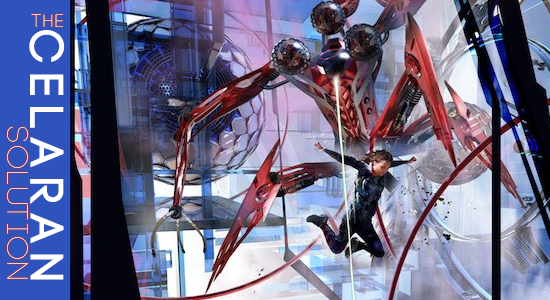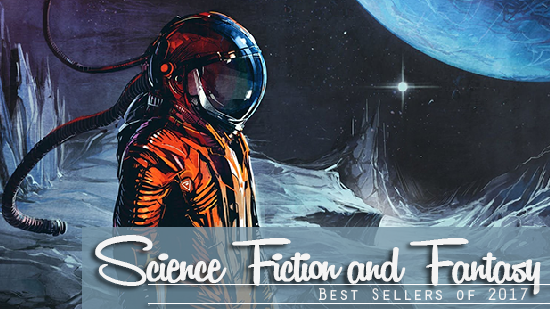C S Lewis' Cosmic Trilogy, More Than Meets The Eye
An old friend recently asked me if C.S. Lewis' Cosmic Trilogy (also know as the Space Trilogy) would make it into my top 100 list. My response was 'Yes, it would'.
Masterpieces such as The Screwtape Letters, The Chronicles of Narnia and Mere Christianity still stand as some of the best Christian writings since John wrapped up the book of Revelation. But nestled somewhere in Lewis’ back catalog are three books that remain somewhat obscure and are simply referred to as the 'Space Trilogy.'
The result is a work that is much more complicated than a single reading can capture but also one that is rewarding beyond words for any reader willing to seek out these books. These books capture Lewis at the top of his creative game and his ability to distill his favorite themes and ideas into the universe. [1]
I received the Cosmic Trilogy as a gift when I was in my early teens and I read through the first two books (Out of a Silent Planet and Perelandra) and started on That Hideous Strength.
As a teenager I loved Out of a Silent Planet and Perelandra. Perelandra did annoy me a little as I thought the allegory to be to blunt and not so subtle. I never really finished That Hideous Strength, even after several attempts to re-read it I could never really get into it. However, this trilogy has recently come back 'on my radar' and I wanted to highlight it on my blog.
The reason these books would make my top 100 list is because they were so influential on my early reading life although more influential would be Stephen Lawhead's Empyrion Duology which would be in the top 10 of that list. (My Empyrion Origins post here)
Several months ago I placed the trilogy on my Re-Read list (so maybe one day in the future I'll write more about it here) maybe along with Dante's Divine Comedy and John Milton's Paradise Lost.
The Thing to Remember
When talking to people about this trilogy I find that they either love it or they hate it. I believe that when discussing Lewis' Comsic Trilogy what you need to remember is that Lewis is coming at these books from a Christian point of view. This point of view is very different to the normal point of view that we get in our average Science Fiction novel so it can be very jarring for those not expecting it or not interested in the Christian world view. However, it can also be refreshing to read a Science Fiction story which doesn't use the usual tropes and constructs. The strength of Science Fiction is the 'What If', so coming at a story from a 'What if the way the universe actually works is different to the way we currently believe it to work?' is permissible and it also opens our minds to new ways of thinking and viewing our world.
A Surprising Influence
Even though the books are written from a Christian point of view you may be interested to know that The Cosmic Trilogy was heavily influenced by the Gnostic David Lindsay’s A Voyage to Arcturus (1920). Lewis comments about Lindsay and says:
He is the first writer to discover what ‘other planets’ are really good for in fiction… To construct plausible and moving ‘other worlds’ you must draw on the only real ‘other world’ we know, that of the spirit. [2]
I had grown up on [H.G] Wells's stories of that kind: it was Lindsay who first gave me the idea that the ‘scientifiction’ appeal could be combined with the ‘supernatural’ appeal.[3]
Want to Discuss This More?
I recently listened to a review/discussion of The Cosmic Trilogy by Ben and Matt two guys who run the SciFi Christian podcast. I found it to be an interesting discussion on this trilogy. Ben loved it but Matt hated it. Ben can see parallels between John Milton's Paradise Lost and Perelandra plus he draws out so much more. He particularly liked That Hideous Strength.
If you are interested in listening to this discussion you can find it here:
Random Facts
- Many of the names in the trilogy reflect the influence of Lewis' friend J.R.R. Tolkien's Elvish languages.
- The character Elwin Ransom, a philologist was modeled after Lewis' friend J.R.R Tolkien
- The heavy influence of A Voyage to Arcturus is also discernible in The Dark Tower, an incomplete novel published posthumously in 1977 as Lewis' work. [4]
Further Reading
1. Relevant Magazine | C S Lewis Space Trilogy2. Hilobrow.com | Radium Age 100
3. The Life and Works of David Lindsay
4. Discovery.org | A Voyage to Arcturus, C. S. Lewis, and The Dark Tower













Comments
Post a Comment
Feedback is welcome.